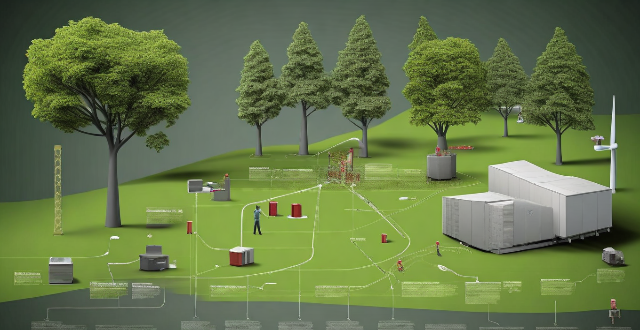Industrial operations often result in high energy consumption, leading to significant environmental impacts. To reduce these impacts and promote a more sustainable future, industries can adopt various sustainable practices for energy conservation. These practices include conducting an energy audit to identify areas of improvement, upgrading to energy-efficient technology, improving building design and infrastructure, implementing renewable energy sources, promoting energy-efficient work practices, and monitoring and evaluating energy consumption regularly. By implementing these strategies, industries can conserve energy and contribute to a more environmentally friendly approach to business operations.

Implementing Sustainable Practices for Energy Conservation in Industries
Industrial operations are often associated with high energy consumption, which can have significant environmental impacts. Implementing sustainable practices for energy conservation is crucial for reducing these impacts and promoting a more sustainable future. Here are some strategies that industries can adopt:
1. Conduct an Energy Audit
- Identify areas of improvement: An energy audit helps identify areas where energy is being wasted or inefficiently used. This can include outdated equipment, poor insulation, or inefficient processes.
- Develop an action plan: Based on the audit results, industries can develop a comprehensive action plan to address identified issues and implement energy-saving measures.
2. Upgrade to Energy-Efficient Technology
- Invest in efficient equipment: Upgrading to energy-efficient machinery and equipment can significantly reduce energy consumption while maintaining productivity levels.
- Optimize process efficiency: Implementing automated systems and advanced control technologies can optimize production processes, leading to reduced energy usage.
3. Improve Building Design and Infrastructure
- Enhance insulation: Proper insulation of buildings and facilities can prevent heat loss during colder months and heat gain during warmer months, reducing heating and cooling requirements.
- Maximize natural lighting: Incorporating skylights and strategically placed windows can reduce the need for artificial lighting during daytime hours.
4. Implement Renewable Energy Sources
- Solar power: Installing solar panels to generate electricity can significantly reduce reliance on non-renewable energy sources.
- Wind power: For industries located in windy regions, harnessing wind energy through turbines can provide a sustainable source of power.
5. Promote Energy-Efficient Work Practices
- Employee training: Educating employees about the importance of energy conservation and providing them with tools to reduce energy usage in their daily tasks can lead to significant energy savings.
- Encourage carpooling: Promoting carpooling among employees can reduce transportation-related energy consumption and emissions.
6. Monitor and Evaluate Energy Consumption
- Regular monitoring: Regularly monitoring energy consumption allows industries to track progress and identify any new areas for improvement.
- Continuous improvement: Based on monitoring results, industries should continuously seek ways to further improve their energy efficiency and sustainability efforts.
By implementing these sustainable practices, industries not only conserve energy but also contribute to a more environmentally friendly approach to business operations.